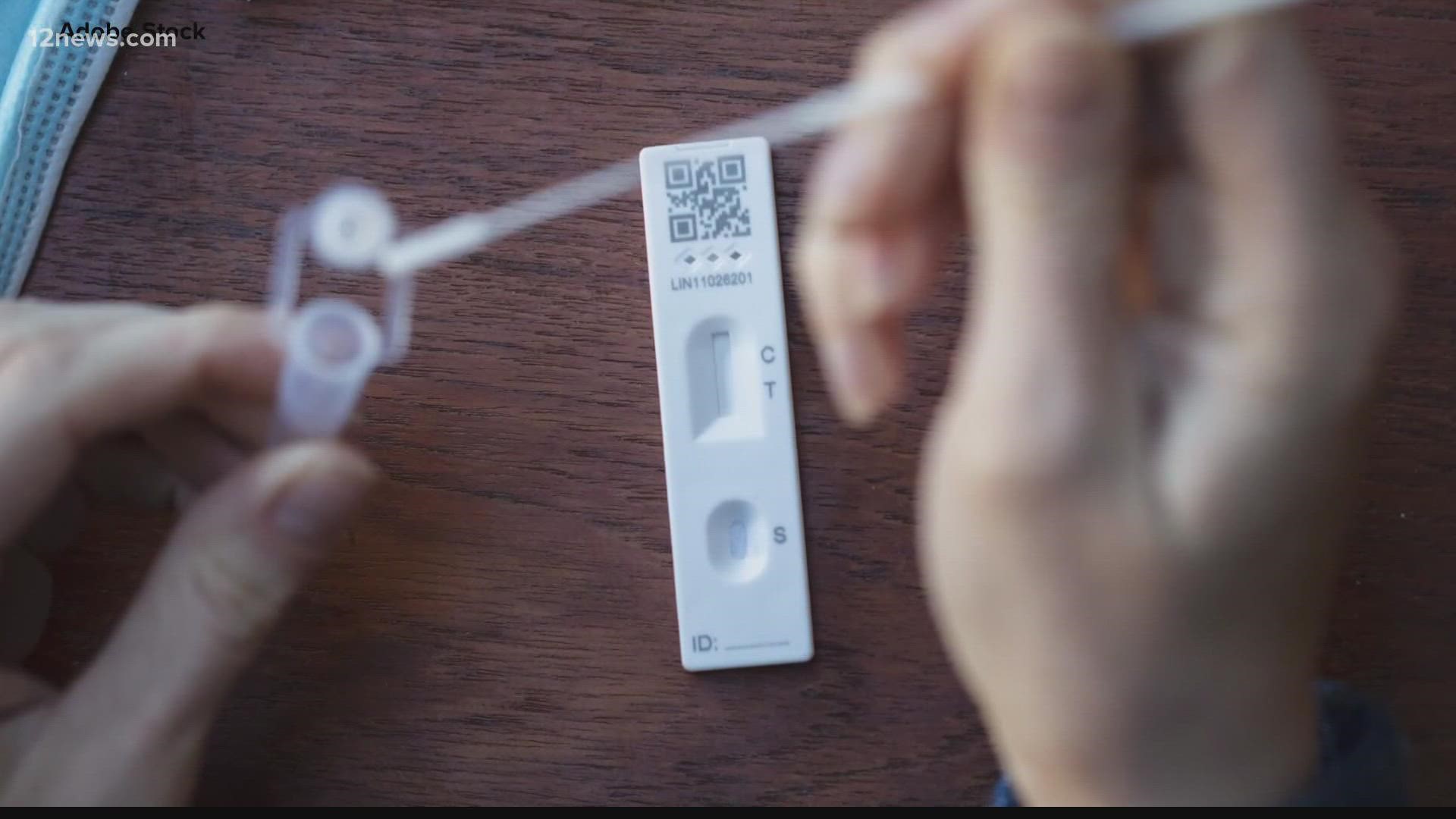ARIZONA, USA — Hot temperatures could make your rapid COVID tests unreliable. The FDA says if tests are left in extreme heat for several days (ie: your mailbox), “long exposure to high temperatures may impact the test performance.”
Valley resident Linda Chencinski learned this firsthand when attempting to prepare for a trip to Chicago. The former biologist is immunocompromised.
She says her free tests, through the federal government program, were hot after sitting in her mailbox for a couple of hours at 108 degrees.
“It was like putting my hand on an oven,” said Chencinski.
She looked on the rapid test box for guidance but found nothing.
“I called the number on the side of the box. They didn't know the answers. So then they gave me the number to Siemens,” said Chencinski.
In a statement to 12 News Siemens, the maker of Chencinski’s tests said:
“In general, the CLINITEST Rapid COVID-19 Antigen Self-Test should be stored away from sunlight at room temperature or refrigerated (2–30°C/36–86°F). We cannot ensure the accuracy of improperly stored tests.”
USPS is in charge of delivering orders placed on COVIDtests.gov. We reached out to USPS for a statement, but it wouldn’t specify the temperatures of the trucks that carry the tests.
What does the FDA say?
The Food and Drug Administration confirms there may be problems with hot tests.
The FDA recommends bringing the at-home test inside and leaving it for two hours at room temperature before opening it. But if it’s been in the heat for too long, like several days, you should consider a different test altogether.
Are any brands safe in hot temperatures?
We reached out to several different manufacturers. Some say their tests would be accurate in extreme temperatures, but each has their own guidance.
If you would like to take a test near you to avoid possible shipping issues visit HHS.gov.
The US Department of Health and Human Services did not confirm which manufacturers’ products it is shipping to Arizona.
COVID-19 News and Updates
Subscribe to the 12 News YouTube channel to receive notifications on the latest videos about the latest information on the coronavirus.

